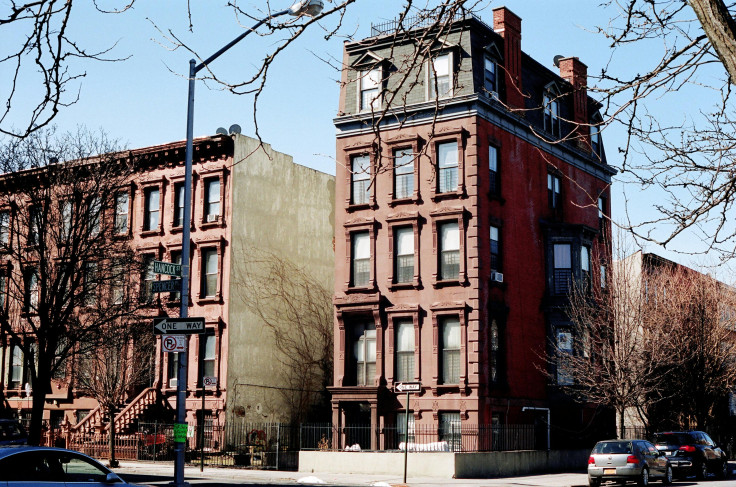London Renters Struggle as Nearly 75% of Income Goes to Rent Amid Soaring Housing Crisis
London's rental market reveals stark regional affordability gaps, deepening economic inequality across England.

London's renters are facing an affordability crisis of staggering proportions, with new official figures showing some households in the capital handing over nearly three-quarters of their income just to cover rent.
The analysis from the Office for National Statistics (ONS) lays bare the gulf between London's spiralling housing market and the relative affordability still found in many northern regions.
On average, tenants in England now spend 36.3% of their incomes on rent, well above the 30% threshold widely considered affordable.
In London, however, the figure soars to 41.6%, making it the epicentre of the nation's rent crisis.
A Tale of Two Englands
The disparity could not be clearer. In London, renters pay an average of £1,957 each month, swallowing 42% of median income.
The picture is even bleaker in boroughs like Kensington and Chelsea, where tenants are forced to part with 74.3% of their pay for housing.
Other boroughs, including Westminster, Camden, and Wandsworth, hover well above the 50% mark, leaving residents squeezed to breaking point.
By contrast, the North-East of England offers a rare glimmer of affordability. Average rents there stand at just £641 a month, around 20% of income.
This stark divide between London and the North is not only a question of geography but also a reflection of Britain's widening economic inequality.
Joseph Elliott, lead analyst at the Joseph Rowntree Foundation, warned: 'High rents are locking people out of secure homes and driving poverty and homelessness. The government needs to tackle the root causes: unaffordable rents, frozen housing support, and a chronic shortage of social housing.'
The Human Cost of Soaring Rents
The statistics translate into harsh realities for millions. Families across London are being forced to make agonising decisions, cutting back on essentials like food, transport, or heating just to keep up with rent.
'Millions spend less on groceries and daily necessities to cover soaring rents,' said Tom Darling, director at the Renters' Reform Coalition. 'Without rent regulation or substantive housing support, the squeeze on renters will not ease.'
The knock-on effects ripple through communities. Lengthy commutes, overcrowded living conditions, and strain on public services all follow from unaffordable housing.
Campaigners fear London could face a hollowing-out of its workforce, with teachers, nurses, and service workers increasingly unable to afford to live anywhere near their jobs.
Sarah Coles, head of personal finance at Hargreaves Lansdown, described the vicious cycle driving the crisis: 'Landlords are selling properties due to higher costs and regulation, reducing supply. More tenants compete for fewer homes, driving rents up even further.'
Calls for Urgent Reform
Against this backdrop, campaigners are demanding bolder solutions. Proposals include a national rental affordability commission to ensure rents are tied more closely to incomes, alongside a major expansion of social housing.London Renters Struggle as Nearly 75% of Income Goes to Rent Amid Soaring Housing Crisis
The government's renters' rights bill, aimed at strengthening tenant protections, has been welcomed but dismissed by many as inadequate.
Critics say it fails to address the fundamental affordability problem, particularly in London and other hotspots such as Bristol and Brighton, where rents also swallow more than 40% of incomes.
Meanwhile, regional disparities continue. In Wales, only Cardiff and the Vale of Glamorgan break the affordability threshold, while Northern Ireland fares better, with rents consuming around 25% of income on average.
A Growing Divide
Experts warn that without decisive action, England's rental market risks becoming permanently fractured. The divide between the overheated capital and relatively affordable northern regions could worsen, fueling wider economic inequality.
Wage growth has failed to keep pace with surging rents, meaning even middle-income households are struggling to find stability. Campaigners insist only a combination of expanded social housing, housing benefit reform, and careful rent regulation will provide relief.
Joseph Rowntree Foundation's Elliott issued a stark warning: 'If current trends continue, secure housing will become even more out of reach for ordinary people, worsening poverty and homelessness.'
Looking Ahead
The ONS figures underscore what many tenants have long felt: London's housing market is broken. For every story of families clinging on in cramped flats in Kensington, there are stories of young professionals priced out of entire boroughs, or key workers commuting for hours because local rents are impossible to afford.
Meanwhile, the North-East remains the country's last bastion of affordability, but experts caution that without intervention, even this relative safety could erode.
The question now is whether policymakers will act decisively to rein in the crisis. Without sweeping reform, millions face a future where the dream of secure, affordable housing slips further out of reach, and the divide between London and the rest of the country becomes a chasm.
© Copyright IBTimes 2025. All rights reserved.





















